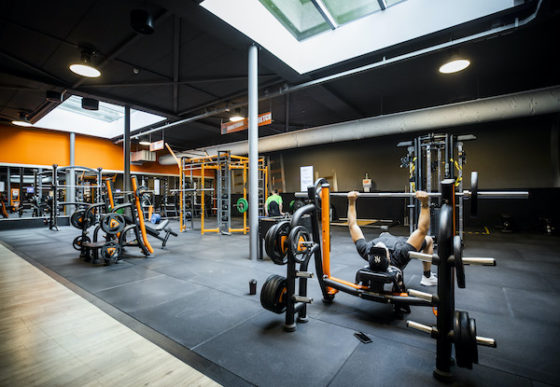The gym before breakfast on a cafe terrace: What changes today


The next step in the government’s five point plan to open up society again comes into effect on Wednesday, now that new coronavirus infections are declining at more than 20% and hospital admissions are also on a downward trend. Here’s what you need to know:
Sports clubs and exercise
Fitness centres, gyms and indoor swimming pools are reopening with a maximum of 30 people and social distancing. People may only exercise or do sports individually or in groups of two – so no yoga or pilates classes as yet. No competitions or spectators and the changing rooms will be closed apart from at swimming pools. Reservations are mandatory.
Some fitness centres opened at midnight to celebrate the new rules.
Outdoor sports will be allowed in groups of up to 30, with 1.5 metre distancing. No competitions, no spectators. The under 27s were already allowed to take part in sports outdoors and do not have to stay 1.5 metres apart.
Sports canteens can also reopen and canoe, boats and bicycles rental firms can start operating again.
Amusement parks and zoos
Amusement parks, zoos and city farms are reopening – although not all are planning to to do so – as can playgrounds, botanical gardens and other outdoor attractions, as long as there is no more than one visitor per 10 square metres.
Reservations are mandatory and limited to single households or no more than two people from different households, excluding children. All indoor attractions – such as the Droomvlucht at the Efteling – remain closed.
Public libraries will reopen from May 20.
Arts and culture
You can take music, dance or theatre lessons again as an individual or in a group of two. No audiences and reservations are mandatory. Face masks are also compulsory unless the nature of the activity makes it impossible.
Open air cinemas and theatres can reopen with a maximum audience of 30 and social distancing. Reservations are mandatory and can be made for family groups or up to two people from different households, excluding children.
Open air museums, sculpture gardens and outdoor historic sites can also reopen with a limit of one visitor per 10 square metres. Indoor museums and galleries remain closed – but may be able to reopen in three weeks when the government hopes the third step can come into effect.
Outdoor seating areas at restaurants and cafes
These can now open from 6am to 8pm, so you can have beer for breakfast, but all other conditions still apply. Each establishment may have a maximum of 50 guests. No more than two people from different households may be seated at a table, sitting 1.5 metres apart.
Dozens of cafes opened at 6am on Wednesday to take advantage of the new rules.
Sex workers can also start working again.
Travel
The blanket ban on foreign travel went on May 15 and was replaced with travel advice on a country by country basis. Check which are yellow or green via Wijsopreis.nl (in Dutch only).
However, most countries – including those with a ‘yellow’ or ‘green’ risk level – have restrictions on travellers from the Netherlands in place, such as quarantine or a negative coronavirus test.
Non-essential travel to amber and red countries is still recommended against.
The rules for travel from abroad to the Netherlands remain unchanged, and visitors will have to go into quarantine if they travel to the Netherlands from a country not on the designated safe list outside the EU.
There are some exceptions to the travel ban for non-EU nationals, which are detailed here.
In particular, there are more options for parents and grandparents to visit children born since flight bans were introduced in March last year, and for the partners of non Dutch nationals to visit their loved one again.
What’s next?
If infections continue to decline, more measures will be relaxed in June. Ministers will take a decision by June 1, with the changes coming into effect on June 9.
Thank you for donating to DutchNews.nl.
We could not provide the Dutch News service, and keep it free of charge, without the generous support of our readers. Your donations allow us to report on issues you tell us matter, and provide you with a summary of the most important Dutch news each day.
Make a donation